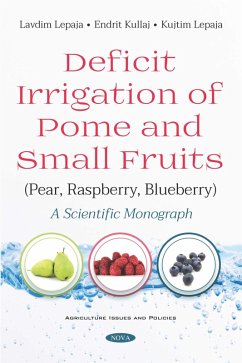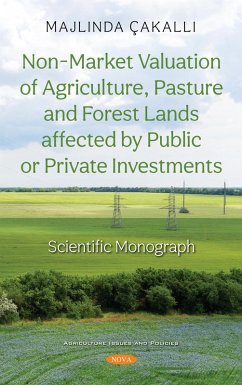Irrigation of pear, raspberry and blueberry is less studied relative to apple and peach, for example. Various researchers have tried different techniques to reduce vegetative growth, but regulated deficit irrigation (RDI) and partial rootzone drying (PRD) are the most favourable and cost-effective techniques, maintaining and, in some cases, increasing yields because allocation of photosynthetic carbohydrates to fruits is favoured compared to vegetative growth. Good knowledge of phenological stages susceptible to water stress is a prerequisite for the successful application of RDI and PRD as various factors effect separately or together the application of RDI and PRD. It should be emphasised that plants grown in open fields are highly dependent to climatic factors, and this is demonstrated by the fact that the same researchers have gathered drastically different results in various environments. RDI is applied in countries in arid climates as it saves water more than in humid or temperate climates. Different cultivars and rootstocks have different response to RDI and PRD. Thus, the application time depends very much from the genotype, because application at early age of the tree may have negative consequences. Under the climatic conditions of Kosovo, which fluctuate year after year, application of regulated deficit irrigation may start at the end of May or beginning of June. While for early cultivars, may apply even after harvest. As in raspberries we have two types of cultivars, floricane and primocane. Therefore, cultivar also plays a crucial role in deficit irrigation. Under the conditions of our country, PRD application for floricane varieties may also be delayed because there is sufficient rainfall in spring, while for primocane varieties by the end of May - beginning of June, but the monitoring of raspberry orchards still indicates the right moment to begin. The correct application of RDI on pear increases flowering, number of fruits (reduces fruit size), yield and reduces vegetative growth including canopy size. The use of deficit irrigation in combination with mulching is a new technology and our preliminary results on pear have shown that it reduces canopy volume and trunk diameter, which is considered very positive, beside the positive advantages of mulching. RDI and PRD technique is being improved and adapted to different environmental conditions.
Dieser Download kann aus rechtlichen Gründen nur mit Rechnungsadresse in A, B, BG, CY, CZ, D, DK, EW, E, FIN, F, GR, HR, H, IRL, I, LT, L, LR, M, NL, PL, P, R, S, SLO, SK ausgeliefert werden.









